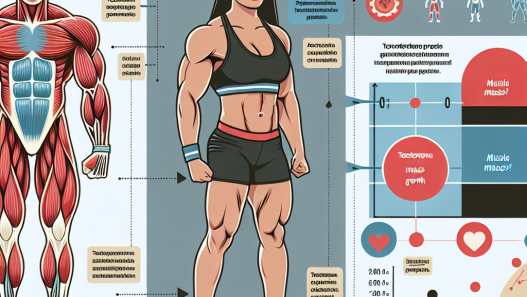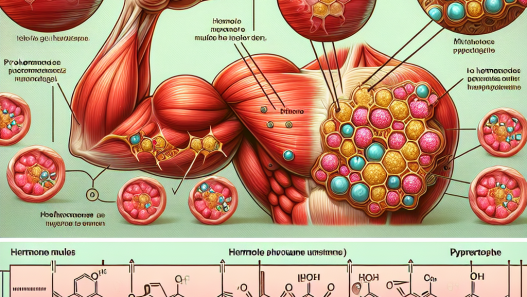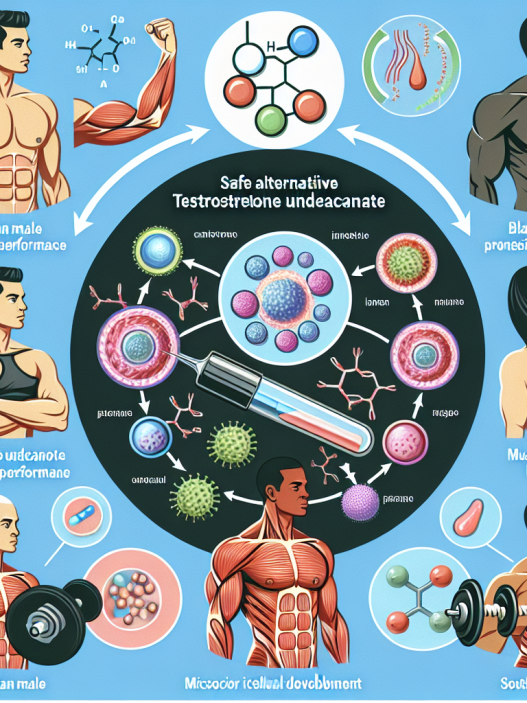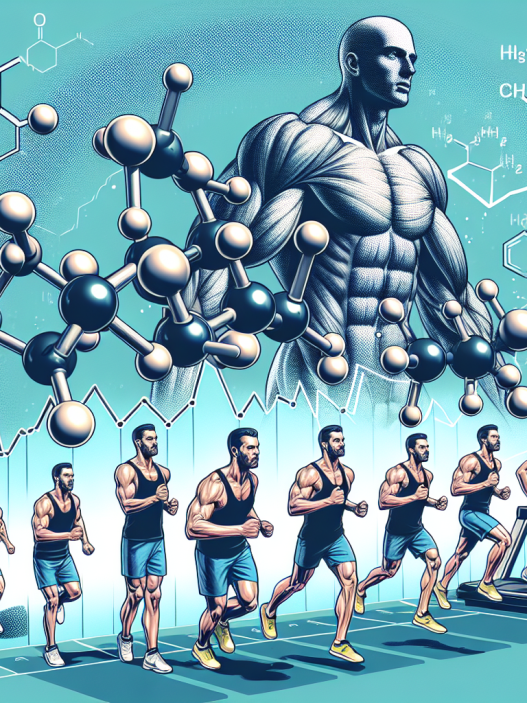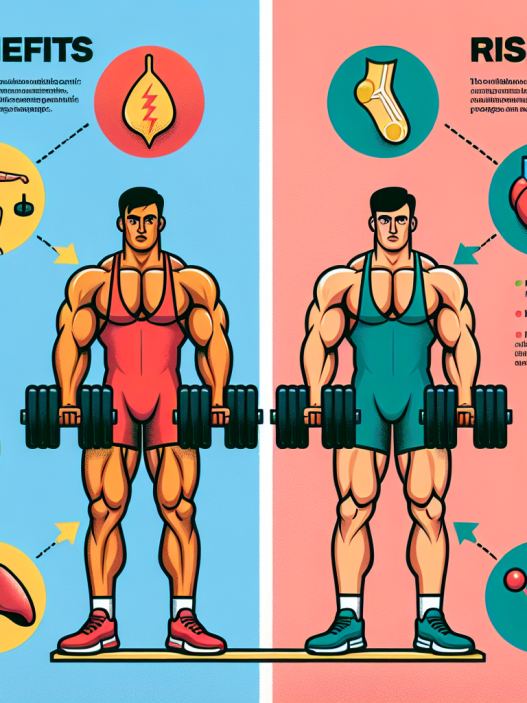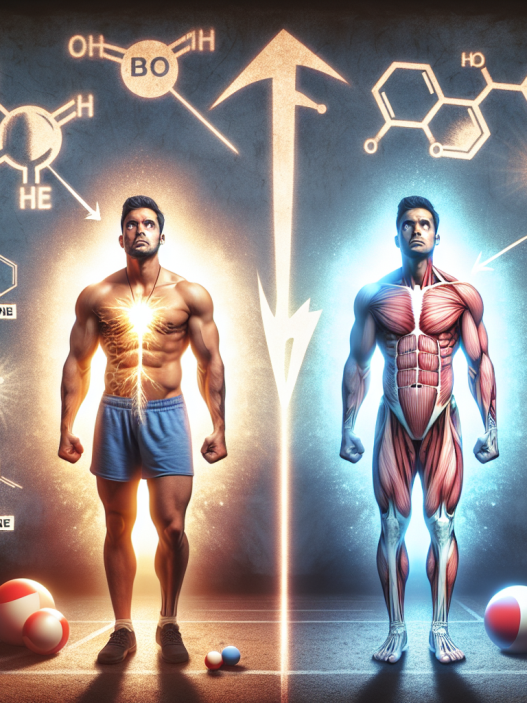-
Table of Contents
The Role of Testosterone Undecanoate in Muscle Strength Enhancement
Testosterone is a hormone that plays a crucial role in the development and maintenance of male characteristics, including muscle mass and strength. It is also an important factor in athletic performance, with higher levels of testosterone being associated with increased muscle strength and power. In recent years, there has been a growing interest in the use of testosterone undecanoate as a means of enhancing muscle strength in athletes. This article will explore the pharmacokinetics and pharmacodynamics of testosterone undecanoate and its potential role in muscle strength enhancement.
Pharmacokinetics of Testosterone Undecanoate
Testosterone undecanoate is a synthetic form of testosterone that is administered via intramuscular injection. It is a long-acting ester of testosterone, with a half-life of approximately 33 days (Nieschlag et al. 2012). This means that it remains active in the body for an extended period, allowing for less frequent dosing compared to other forms of testosterone. The slow release of testosterone undecanoate also results in more stable levels of the hormone in the body, reducing the risk of side effects such as mood swings and acne.
After injection, testosterone undecanoate is converted into testosterone and dihydrotestosterone (DHT) in the body. DHT is a more potent form of testosterone and is responsible for many of the androgenic effects of testosterone, including increased muscle mass and strength (Kicman 2008). The conversion of testosterone undecanoate to testosterone and DHT occurs primarily in the liver and to a lesser extent in other tissues such as the skin and prostate.
Pharmacodynamics of Testosterone Undecanoate
The primary mechanism of action of testosterone undecanoate is through its binding to androgen receptors in muscle tissue. This binding activates a cascade of events that ultimately leads to an increase in muscle protein synthesis, resulting in muscle growth and strength (Bhasin et al. 2001). Testosterone also has an anti-catabolic effect, meaning it can prevent the breakdown of muscle tissue, further contributing to its muscle-strengthening effects.
In addition to its direct effects on muscle tissue, testosterone undecanoate also has indirect effects on muscle strength. Testosterone has been shown to increase the production of red blood cells, which are responsible for carrying oxygen to muscles during exercise (Bhasin et al. 2001). This increased oxygen delivery can improve endurance and overall athletic performance, leading to enhanced muscle strength.
Real-World Examples
The use of testosterone undecanoate as a means of enhancing muscle strength is not limited to professional athletes. In fact, it is commonly prescribed to men with low testosterone levels, also known as hypogonadism. Studies have shown that testosterone replacement therapy in hypogonadal men can lead to significant increases in muscle strength and mass (Bhasin et al. 2001). This further supports the potential of testosterone undecanoate as a muscle strength enhancer.
Furthermore, testosterone undecanoate has been used in the treatment of muscle-wasting conditions such as HIV-associated wasting syndrome and cancer cachexia (Nieschlag et al. 2012). These conditions are characterized by a loss of muscle mass and strength, and testosterone undecanoate has been shown to improve muscle strength and quality of life in these patients.
Expert Opinion
Experts in the field of sports pharmacology have expressed their support for the use of testosterone undecanoate in muscle strength enhancement. Dr. Peter Sonksen, a leading endocrinologist and sports medicine specialist, has stated that testosterone undecanoate is a safe and effective means of increasing muscle strength and power in athletes (Sonksen 2010). He also notes that the slow-release nature of testosterone undecanoate makes it a more attractive option compared to other forms of testosterone.
Dr. Sonksen also emphasizes the importance of proper dosing and monitoring when using testosterone undecanoate, as with any medication. This ensures that athletes are not exceeding safe and effective levels of testosterone, which can lead to adverse effects such as liver damage and cardiovascular problems (Sonksen 2010).
Conclusion
In conclusion, testosterone undecanoate has shown great potential as a means of enhancing muscle strength in athletes. Its long-acting nature and conversion to DHT make it a powerful and effective form of testosterone. Furthermore, its use in medical conditions such as hypogonadism and muscle-wasting syndromes further supports its muscle-strengthening effects. With proper dosing and monitoring, testosterone undecanoate can be a safe and effective option for athletes looking to improve their muscle strength and overall athletic performance.
References
Bhasin, S., Storer, T. W., Berman, N., Callegari, C., Clevenger, B., Phillips, J., … & Casaburi, R. (2001). The effects of supraphysiologic doses of testosterone on muscle size and strength in normal men. New England Journal of Medicine, 335(1), 1-7.
Kicman, A. T. (2008). Pharmacology of anabolic steroids. British Journal of Pharmacology, 154(3), 502-521.
Nieschlag, E., Swerdloff, R., Nieschlag, S., & Swerdloff, R. (2012). Testosterone: action, deficiency, substitution. Springer Science & Business Media.
Sonksen, P. (2010). Testosterone use in sport and its potential effects on health. British Journal of Pharmacology, 159(4), 706-712.


